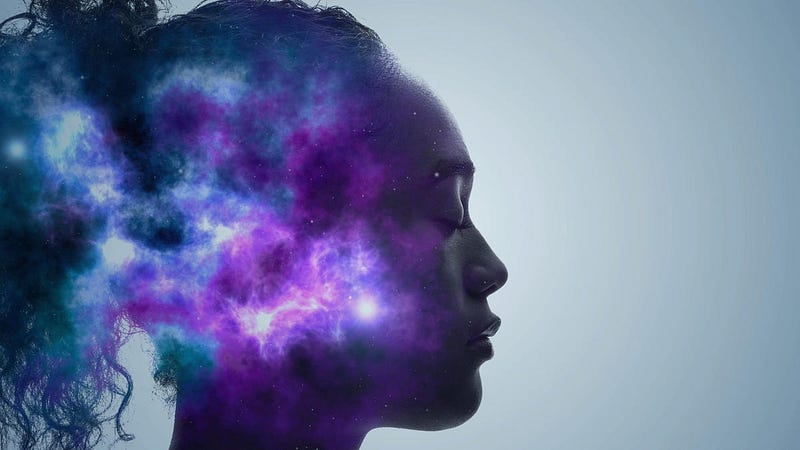Exploring the Existence of the Soul: A Modern Debate
Written on
Chapter 1: The Ongoing Debate on the Soul
The discussion surrounding the existence of the human soul remains a captivating topic, as highlighted in Joel Eisenberg's work, "Scientists Debate the Existence of the Human Soul." While it touches on the historical context of soul searching, it leaves readers pondering why this debate persists. Skeptics struggle to extinguish the discourse through rational arguments alone, and scientists find it difficult to firmly define consciousness, let alone the concept of a soul. Meanwhile, those who are spiritually inclined often rely on anecdotal evidence, which, despite being considered less rigorous, shows intriguing consistency across different cultures and time periods.

An Experiment For Consciousness? A Cross-National Dialogue
Discussing the soul inevitably leads to a multitude of related topics that demand equal attention. To draw a parallel, when a government acknowledges the existence of UFOs, it not only suggests extraterrestrial life but also resurrects associated concepts ranging from Bigfoot to alien abductions. If we accept the notion of a soul, do we then also have to entertain ideas like ghosts, angels, demons, possessions, and reincarnation?
Hypothetically, envisioning a world where souls inhabit bodies like avatars raises critical questions. How can we differentiate between mediumship and mental health disorders? The existence of a soul and the potential for communication with spirits do not negate the reality of mental health challenges.
Determining whether hearing voices or experiencing visions significantly disrupts one's daily life could serve as a basis for differentiation. While mediums often lead functional lives, many individuals facing mental health issues struggle to thrive. Surviving does not equate to thriving, but those who manage to survive deserve recognition for their resilience.
Notably, a segment of the population experiences auditory and visual hallucinations (AVH) without relief from medication. This does not imply that their experiences are merely products of mental illness. Some individuals report sporadic AVH without seeking clinical intervention and maintain a satisfactory quality of life.
So, what criteria should we use to gauge the severity of these experiences? How much discomfort or disruption should dictate classification? Not everyone possesses the capabilities of a "Beautiful Mind"; some may find themselves akin to a "Soloist."
Soul Recognition and Societal Implications
Even when organizations acknowledge the existence of the soul, consensus is often lacking among different entities, which further fuels skepticism. Regardless of one’s religious beliefs, societal acceptance of certain beliefs can yield benefits, such as enhanced health and the promotion of altruism.
Recent scientific advancements have made strides toward acknowledging a reality beyond the tangible, whether that be the soul, consciousness, or something yet undefined—perhaps akin to a collective unconscious. Near-Death Experiences (NDEs) are a topic of growing interest, and one might expect that various religions would support this phenomenon. However, when viewed through a scientific lens and subjected to statistical analysis, these experiences often do not align with any specific belief system.
Additionally, many Western spiritual organizations are hesitant to embrace the idea of reincarnation, as it poses questions regarding the authority of traditional religious institutions and their foundational texts.
The Sovereignty of the Soul: Equality Among Souls?
What if all souls are inherently equal? This notion is challenging to grasp, particularly given the visible inequalities among humans. While I am not referring to legal status, it is evident that wealthier individuals often face fewer social repercussions than their poorer counterparts. We come in various shapes and sizes, from short to tall, and from healthy to unhealthy, encompassing a wide range of talents and contributions to society.
These variations naturally lead us to assume that souls might be ranked differently. Our language often invokes gods and goddesses, as it reflects the ideals that are embedded within it. Just as biological systems undergo evolution, so too do languages, suggesting that archetypal understanding could be an innate aspect of language.
If this premise holds any validity, could we not foresee a future where computer languages evolve to embody archetypal understanding, potentially indicating that even machines possess souls?
Scientific perspectives assert that biological processes occur randomly, a notion that has recently been challenged.
Study challenges evolutionary theory that DNA mutations are random: Findings could lead to advances…
A simple roadside weed may hold the key to understanding and predicting DNA mutation, according to new research from…
www.sciencedaily.com
If DNA and RNA can be viewed as a form of language, and all languages facilitate archetypal communication, then perhaps life forms are inherently designed to discover the concept of the soul. It may be revealed that everything in the universe consists of fundamental linguistic components that contribute to the evolution of the soul.
The Universe as a Soul: A Philosophical Leap
How might one arrive at the conclusion that the universe itself is a manifestation of soul? At its core, all matter is energy—a principle rooted in Einsteinian physics. Quantum physicists argue that energy represents information, which is essentially data arranged in linguistic patterns that foster understanding, leading to the evolution of consciousness.
Alternatively, perhaps I am merely speculating. Who can say for certain?
Is Mind Equivalent to Soul?
Is the mind synonymous with the soul? Is consciousness merely an amalgamation of reference points that could be deemed an artifact of archetypal transmission? Are humans the living embodiments of a universal mind?
Why are we engaged in debates about the existence of the soul? What other inquiries stem from this core question?
Recommended Videos
The first video, "Does the Soul Exist? A Debate Between Matt Dillahunty and Eric Hernandez," dives into the intricacies of this profound question, presenting arguments from both sides.
The second video, "Debate: Does the Soul Exist," offers an engaging exploration of differing perspectives on the soul's existence, enriching the ongoing dialogue.